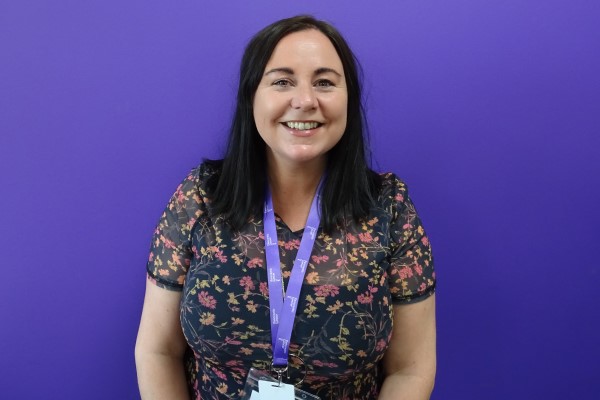



Support with the rising cost of living
Hello, I’m Nicci, one of the specialist nurses at Pancreatic Cancer UK.
This blog is about how to get support with the cost of living. Living with cancer can have an impact on your finances, so we have put this blog together to help you quickly find the support that is available.
Money worries can be stressful. Dealing with them can help you feel less anxious. As well as the tips below, we also have information about how to get support if you are feeling anxious or down.
Things you can do to help with the cost of living
Speak to your employer
If you are working, your employer must make reasonable adjustments (changes) to make sure you are not at a disadvantage because of your cancer. Talk to them about what changes they might be able to make so that you can carry on working. This might be things like working part time for a while, or working from home. If you are part of a trade union, they may be able to support you to have conversations with your employer about reasonable adjustments.
If you are not well enough to work, ask your employer what the sick pay policy is and how much you will be paid. This can help you plan your finances.
Read more about work and money.
Deal with mortgage and rent payments
You may be able to get help from your mortgage lender if you are worried that you can’t afford your monthly payments. Discuss it with them. There are things they might be able to do to reduce your monthly payment amount.
If you are renting, you should speak to your landlord and try to reach an agreement with them. You may also be able to get Universal Credit to help pay your rent if you can’t work, or are on a low income. There are some circumstances where the benefits you get for housing costs may not fully cover your rent. In this case, you may be able to apply for Discretionary Housing Payments.
Maximise your income
It’s a good idea to check if you are entitled to any benefits that you are not already claiming. Benefits are not just for people who aren’t working. Macmillan Cancer Support has a benefits calculator for people with cancer in England, Wales and Scotland. If you live in Northern Ireland, you can use the general benefits calculator on the MoneySavingExpert website.
You could also contact the Macmillan welfare rights advisers. They can help you check what financial support you may be entitled to and help you with things like filling in claim forms. Maggie’s centres have benefits advisors you can speak to in person.
Look into grants
A grant is money given to you that you don’t have to pay back. Macmillan Cancer Support gives small, one-off, means tested grants to help people with the extra costs that cancer can cause. This could be for things like travel to your appointments or help paying heating bills. There is more information about this, and other grants you might be able to claim, on the Macmillan website.
The charity Turn2us has a grants finder which you can use to find grants that might be available to people in your local area.
Check insurance policies
Look at any private insurance policies that you may have, for example mortgage protection or critical illness. These may offer financial support in the event of a cancer diagnosis.
Eat well on a budget
It’s important for you to eat well when you have pancreatic cancer. Your shopping can be expensive, but there are lots of ways you can eat well on a smaller budget:
- Buy frozen or tinned fruit, vegetables and fish instead of fresh. They can be just as good for you but often a lot cheaper. And choose supermarket own brands.
- Cheaper cuts of meat are just as nutritious as the more expensive ones. They may also have more calories which may help you maintain your weight.
- Use less meat by adding cheaper proteins such as lentils or beans to meat dishes, like chilli.
- Buying dried pulses (like lentils) or soy mince and preparing them at home can be cheaper than buying them ready made.
- Cook lots of food in one go while you have the oven on. Cooking larger batches of meals also means you can save by buying in bulk and you don’t have to cook every night.
- Pressure cookers, slow cookers and microwaves can be cheaper ways to cook than a standard cooker.
- Plan meals ahead so you know what you need to buy and can reduce food waste.
- There are lots of cheap recipes online. Try BBC meals on a budget. Read our tips for simple ways to add more calories to meals if you have lost weight.
- Shop around and look for deals. The MoneySavingExpert website has a list of current deals. Food shops quite often reduce prices towards the end of the day or on a Sunday.
- If you need to use a food bank, look at the Trussell Trust website to find one close to you.
Read our information about diet and pancreatic cancer. This explains how to take pancreatic enzyme replacement therapy and get the nutrition you need.
Get help with household bills
With the high cost of energy, you may be thinking of ways to use less. But it’s really important that you put your health first. For example, you might need to keep the heating on more to keep warm. There is help available if you are struggling with bills.
Firstly, speak to your energy supplier and tell them that you have cancer. They may be able to find ways to help reduce your costs, or spread them over a longer time so that it’s easier to pay them. MoneySavingExpert has more information about how your energy supplier might be able to help. There is also information about what support there is from the government for energy bills.
Citizens Advice has information about benefits and grants you can apply for to get help with your energy bills. It might also be a good idea to see if there are ways you can save energy that won’t affect your health.
The government has given local councils money for a Household Support Fund. This fund supports vulnerable people who can’t afford the essentials. Speak to your local council about who is eligible.
You may be able to get money off your council tax bill, or your rates bill if you live in Northern Ireland. Macmillan Cancer Support has more information about help with bills and housing costs, and they have advisers you can speak to on the phone.
Useful sources of information, support and tips on the cost of living
There is lots more support and advice available to help you deal with the cost of living and the financial pressures of pancreatic cancer. The organisations below can be good places to go for more information and help.
- Citizens Advice provides free, confidential and impartial advice on things like money and debt, work, benefits and more, either online, over the phone or in person.
- The Energy Saving Trust gives advice and support on home energy efficiency.
- Macmillan Cancer Support has lots of information and advisors you can speak to about financial matters, including benefits, energy bills, and housing costs. They also give other types of support to people with cancer.
- Maggie’s provides information on money and benefits for people with cancer, and often have advisors in their centres. They also give other types of support to people with cancer.
- MoneySavingExpert is a website with tips and information about how to save money and understand your finances better.
- Turn2us is a charity focused on helping people in financial need access welfare benefits, charitable grants and other financial help.
- GOV.UK has lots of information about the support available to help with the cost of living.
We are here for you
We hope this blog has been helpful. If you need someone to speak to about pancreatic cancer, you can of course speak to one of our specialists nurses on the Support Line. You can get in touch online or call us for free on 0808 801 0707.
We know things may be tough. We are here for you.
Nicci
Published January 2025
This information was accurate when it was published, and we update it regularly, but things can change quickly. So do check the links above for the latest information.

